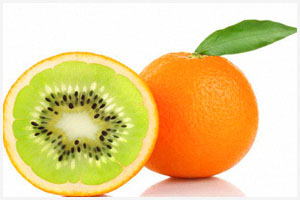
Organic agriculture refers to a production system that maintains the balance in nature, maintains soil fertility, takes control of diseases and pests, ensures the continuity of living things in nature, and obtains optimum yields with the optimum use of natural resources and energy. Organic agriculture is an approach that integrates human, environment and economically sustainable agricultural production system.
Nowadays, conventional agriculture has had to leave its place to new generation agricultural practices. A different method is discovered every day in agricultural production, and it is tried to buy more products with less energy for the rapidly growing world. In light of these developments, the countries that understood that they had to take responsibility, decided that they had to unite and set some criteria in order to take a step.
In addition to this, national and international organizations sensitive to this issue have started to work on placing agricultural production in certain criteria and standards. People are now more consciously looking for products that are guaranteed to be safe in the food market. When it comes to food safety, within the scope, foodstuffs do not contain unnatural ingredients or keep these ingredients at a harmless or acceptable level, strict compliance with cleanliness and hygiene conditions in food production, attention to environmental relations in various production stages of food, Many considerations should be taken into consideration, such as keeping the well-being and well-being at the forefront.
Based on these concerns, retailers who continue to trade in the EU market have come together to ensure that the products they offer to their customers are safe and produced on the principle of sustainability. This group, which started out with human emotions and with the concern of protecting nature, later founded the European Retailers Product Working Group in 1997 (Euro Retailer Produce Working Group, EUREP).
These activities of the EUREPGAP Technical and Standards Committee soon spread around the world and each country established its own national systems. For example, ChileGAP in Chile, ChinaGAP in China, JGAP in Japan. As such, EUREPGAP made a decision in 2007 and changed its name to GLOBALGAP.
The standards accepted by GLOBALGAP have been developed by all countries of the world. Regulation is also based on the same principles of Good Agricultural Practice has been published in Turkey. Good Agricultural Practices Supports the continuous development of farming-related methods and technologies based on the principles of Hazard Prevention, Hazard Analysis (HACCP) Integrated Pest Management (IPM) and Integrated Crop Production (ICM).
The product has the certificate of Good Agricultural Practices; does not contain chemical, physical, microbiological residues and is produced without polluting the environment and damaging the natural balance; human, worker and other living organisms are not negatively affected during production; it is understood that it is in compliance with the agricultural legislation of the countries where it is produced and consumed.
In fact, when implementation started, fresh fruit and vegetables were first sought as a prerequisite for entry into EU countries. In this way, this document is a product monitoring guarantee provided by European Union retailers to consumers. Consumers ensure that any agricultural product they receive is not risky in terms of cleanliness and hygiene, and that no harm to the environment is produced during production.
Agencies exporting agricultural products to the European Union countries are obliged to obtain this document to prove to the consumers that their products meet the required conditions through retailers. The GLOBALGAP Certificate is a document issued by independent and independent organizations that shows that the manufacturers meet the necessary conditions. It is a mandatory document for the products to enter the European Union markets.
This system increases the expectations of the consumers from the product they buy and encourages them to make more conscious choices. The same understanding has begun to develop rapidly in our country, and some large retailers demand products with GLOBALGAP Certificate from manufacturers as a proof of the reliability of the products they offer to their customers.
Improving the quality of food in agricultural products, increasing the productivity of agricultural production, protecting the ecological balance and protecting the nature, ensuring that natural resources are used efficiently, blending traditional production methods with today's production technologies, raising the quality of life of producers, consumers and society in general constitute the basic principles of GLOBALGAP system.
They want to be sure that the food they buy in consumers is not harmful in chemical, physical and microbiological terms, does not harm the environment and natural balance with the production activity of the producer organizations, is produced in accordance with legal regulations, and that all necessary measures are taken to ensure the health and safety of people working in production activities.
In order to meet these justified expectations of consumers, the GLOBALGAP System has been developed as a quality system in the agricultural sector. It focuses on field production and adopts integrated farming principles. It complies with the HACCP Hazard Analysis and Critical Control Points System and ISO 9001 Quality Management System standards for food safety and quality. ISO 14001 Environmental Management System is in parallel with OHSAS 18001 Occupational Health and Safety Management System in terms of occupational health and safety.
For more information, you can reach our expert team from our contact addresses and phone numbers and you can get answers to all your questions.